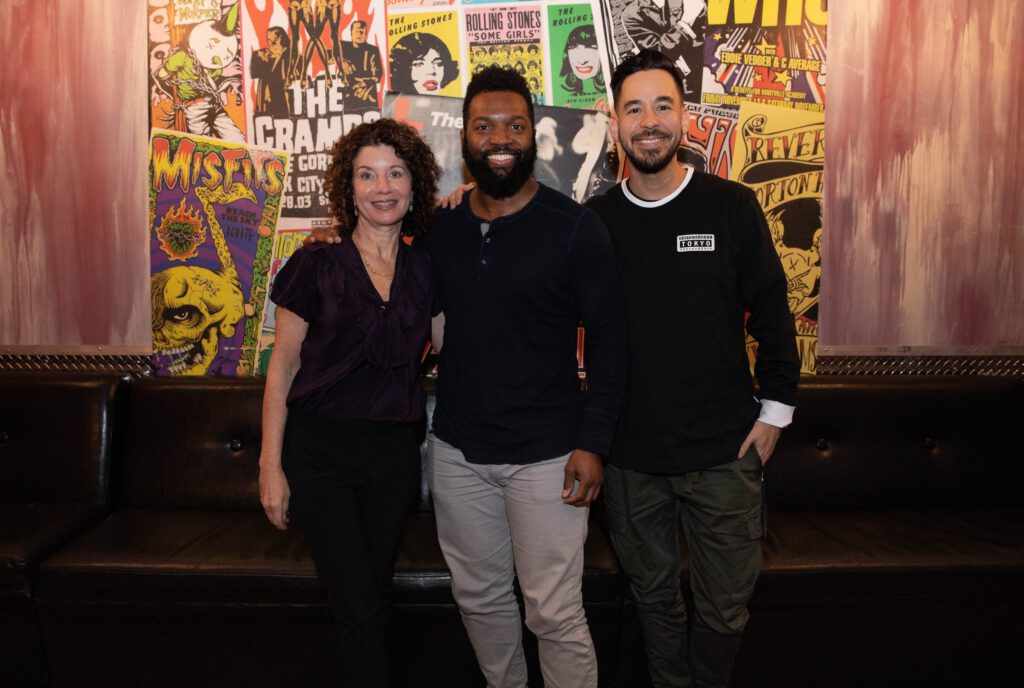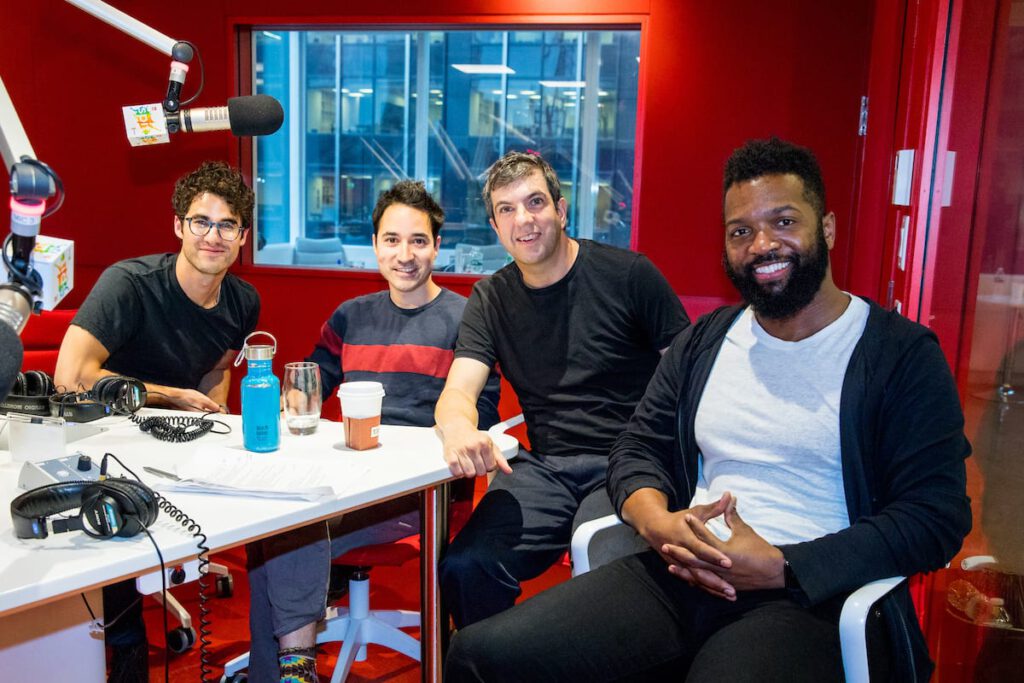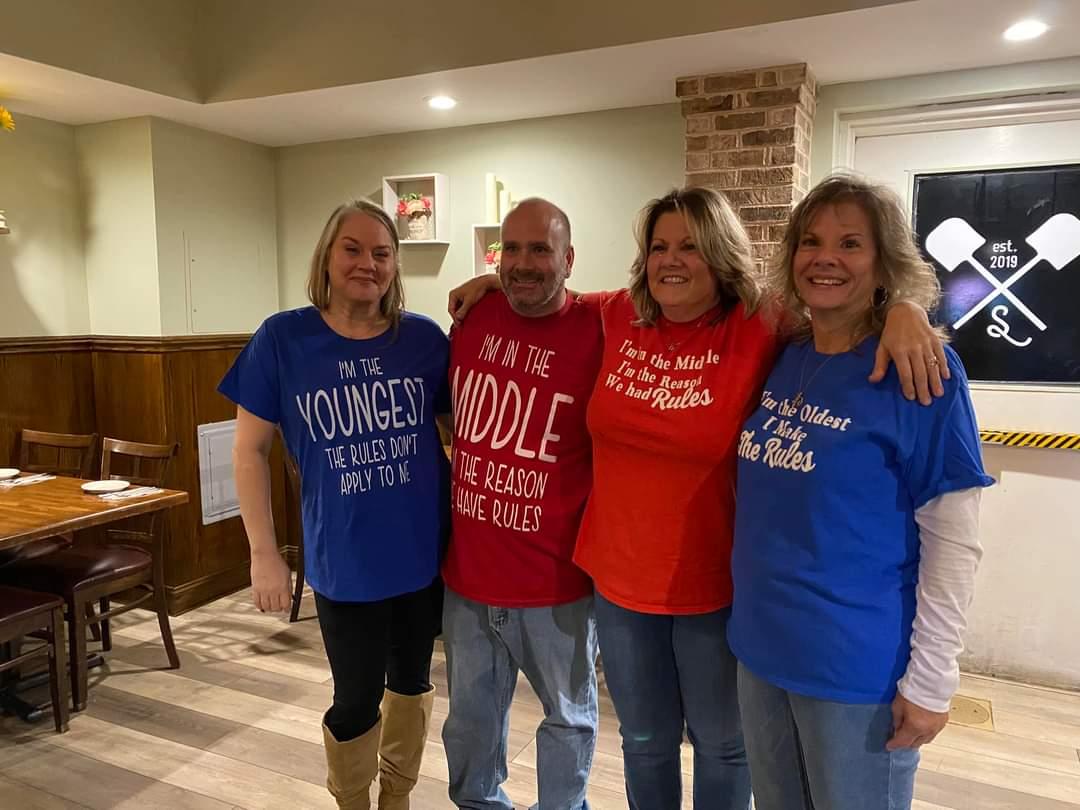The latest episodes of Spit, iHeartRadio’s podcast with 23andMe, includes more intelligent and raw conversations with artists, thinkers, and scientists across a variety of topics. This next batch of episodes take a different turn looking at the influence of genetics and personal experiences around emotional wellbeing, addiction, and family.
Hosted by the writer, comedian and cultural critic, Baratunde Thurston, the podcast continues to probe into the ways genetic science is changing how we see the world and the issues many of us wrestle with every day. And the show stays true to its fearless march into difficult territory with conversations that attempt to break the stigma around mental health and addiction.

Spit podcast host Baratunde Thurston, left, with addiction specialist Dr. Adi Jaffee, Ph.D., center, and Mötley Crüe bassist Nikki Sixx.
All About Addiction
Baratunde’s frank discussion about addiction with former Mötley Crüe bassist Nikki Sixx, and Adi Jaffe, Ph.D., an addiction specialist, and author, gets personal fast. Both men share their own stories of troubled childhoods, and falling into addiction, and they hash out the many ways both nature and nurture contribute to addictions. Sixx kicked a punishing addiction to heroin while Jaffe, who also lectures at UCLA, once had drug problems of his own.
While the first part of the conversation touches on the science, Baratunde takes things deeper into the biology of addiction during the second part of this podcast by engaging with two academics from UC San Diego, School of Medicine’s Department of Psychiatry — Abraham Palmer, Ph.D., and Sandra Roige, Ph.D. Palmer and Roige have recently published papers using data from 23andMe that offered insight into addiction, most recently on alcoholism, and before that on something called “delay discounting” — a tendency to overvalue immediate rewards over future ones, which is also associated with impulsivity and addiction. The researchers emphasize that genetics is not deterministic and environment plays a critical role in addiction, but genetics matters too. It matters not just in one’s tendency toward addiction, but also in how someone’s body reacts to alcohol or drugs, or a person’s tolerance or their inability to quit.
Mental Health Awareness
For the podcast on mental health, Baratunde sits down with Gail Saltz, Ph.D., a professor of psychiatry and a psychoanalyst, and singer and songwriter Mike Shinoda of the band Linkin Park. Shinoda has become an advocate for mental health awareness after the death of his close friend and Linkin Park bandmate Chester Bennington, who died last year of an apparent suicide. Shinoda poignantly asks Dr. Saltz:
“Is there more we can do? And if so, how?”

On the left, Professor Gail Saltz, PhD, with Baratunde Thurston, center, and Mike Shinoda of the band Linkin Park.
During their conversation with Baratunde, Saltz and Shinoda talk about combating the stigma of mental illness, and resources for those battling depression or helping others in a mental health crisis. Together they explore some of the genetic and environmental factors that influence anxiety, depression and other behavioral issues. 23andMe has been working on a study on the genetics of major depression and bipolar disorder. In August of 2016, researchers from 23andMe, Massachusetts General Hospital, and Pfizer, published a landmark study on the genetic connection between genetics and depression. The study, the largest of its kind to date, identified 15 genetic regions that were linked to depression, but the work is ongoing.
We Are Family
In the podcast on family, the conversation takes a lighter turn as Baratunde poses the question of whether people would be more unified if they understood we are all “related.”

From left to right Darren Criss, his brother Chuck, writer AJ Jacobs and Spit podcast host Baratunde Thurston. Photo: Katherine Tyler for iHeartRadio
For this discussion he sat down with AJ Jacobs, a humorist and the author of the book “It’s All Relative,” along with the brothers Darren and Chuck Criss of the band Computer Games. Jacobs, who is a friend of 23andMe, talked about trying to create a global family tree to illustrate how we are all related. A few years ago he helped organize a “global family reunion,” and he talked about what he saw as the talked about one moment during the event when everyone at the event and those tuning in online started singing the song, “We Are Family.”
“It was quite moving,” he said.
The Criss brothers talked about their own family, and not really connecting with their distant relatives until they were older. But they also talk about how they feel family-like connections to many of those with whom they work, connections that have nothing to do with genetics.
“We are surrounded by people in our lives we consider cousins,” said Darren. “They feel closer to us than blood family.”
You can find these or any of the Spit, podcasts at iHeart, or on iTunes.




